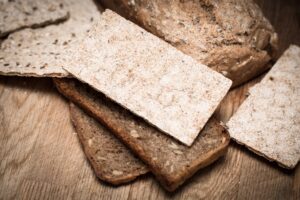Learning about how an insulin resistance diet has helped me control my health and my skin. Simply put, Insulin resistance occurs when your cells stop responding to the hormone insulin, and this causes higher insulin and blood sugar levels and can potentially lead to type 2 diabetes. Insulin resistance is linked to other ailments, including heart disease, Alzheimer’s disease, PCOS, and cancer. So it’s definitely something that should be on your radar!
Insulin resistance can send your inflammation levels soaring. This can look like large pores in the skin from increased oil production, increased acne, dark skin patches called acanthosis nigricans, and even an increase in skin tags.
Many things can cause insulin resistance, including overeating, weight gain, high fructose intake from added sugars, reduced physical activity, and a disruption in the bacterial environment in your gut.
Insulin does not usually present symptoms until diabetes develops, and most people are unaware they have the condition. Testing from your doctor is the best way to tell if you are actually insulin resistant. I’ve found that certain foods and lifestyle changes that help insulin resistance are also great for calming acne and other inflammatory skin conditions in my professional skin practice.
Natural ways to address insulin resistance:

A low glycemic diet.
Sugar and refined carbohydrates promote inflammation and raise androgen levels, leading to excessively oily skin. According to some studies, following a low-glycemic diet can reduce acne in just over two months.
The glycemic index is a numeric scale on which all carbohydrate foods are ranked based on how drastically they raise your blood glucose levels after eating them. The higher the ranking, the more a portion of food will raise your blood sugars and insulin to lower them. Eating less processed food and foods containing fewer added sugars is best for sticking to a low glycemic diet.

Get the right fat balance.
Focus on healthy fats like Omega-3’s found in wild-caught fish and grass-fed animals, reducing insulin sensitivity and limiting processed fats such as canola, soybean, and corn oil, raising inflammation.
